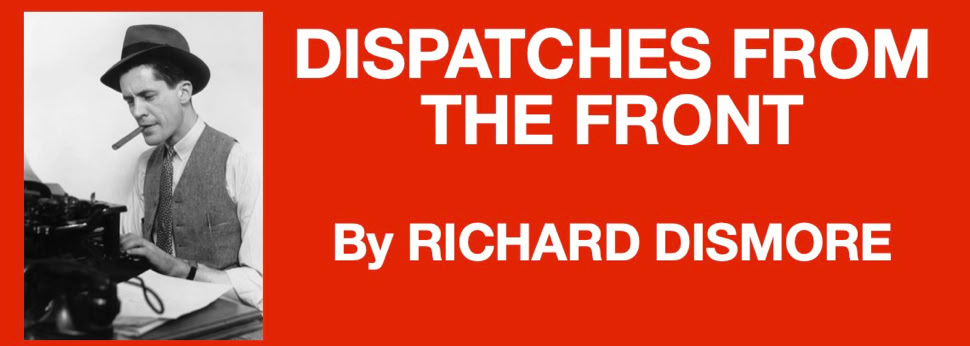
Is Home Secretary’s migrant crackdown designed to divert attention from a deft kick in the slats in the wonky Budget?

An old friend I worked alongside had a catchphrase for when the going got tough and copy was fluttering like autumn leaves onto his desk.
“My arse is on fire,” he would say, biting through the stem of another pipe.
I suspect this sums up how Chancellor Rachel Reeves feels right now. Whatever her Budget contains a week from today, it will be dead on arrival at the Commons.
It has had so many dummy runs and false starts, so many kites flown, that no one any longer cares what it looks like – just bloody well get on with it.
There will be pain, especially if you own a house or a car, have a pension or run a business, which is a substantial number of us.
By contrast, “ordinary people”, whom this Budget will be designed to help, will escape lightly. Only they won’t, of course, because when you’re busy destroying the economy, you lay waste to everything. Think scorched earth.
“Ordinary people” or “hard-working families” – those stereotypes that continue to prop up the Starmer fantasy of modern Britain – will wonder what happened to their High Street and why they can no longer afford a pint at their local (assuming it still exists).
A fascinating piece in this week’s Sunday Times looks at the economics of a £5 pint. Round my way, a pint of Landlord is more likely to cost £7.50 and in the West End you can double the writer’s notional fiver for a pint.
But Pete Brown, who writes a weekly column on beer in the magazine, has chosen a nice round figure to illustrate his point. A point that is not only depressing, but also a metaphor for the wider economy.
The pub landlord pays the brewer £1.31 for each pint he buys. He sells it at a net profit of 13p. But the Government’s take from the same pint is £2.03 – or 40 per cent. VAT accounts for 83p, duty paid by the brewery is 56p, business rates 35p, employment tax for pub staff 29p.
Is it any wonder that pubs are closing at the rate of one a day? My own favourite local shut its doors a couple of years ago. It was actually two pubs knocked into one – the Mawson Arms at one end, the Fox and Hounds at the other.
It was a friendly, companionable place built hard up against the Fuller’s brewery, where many of the drinkers came from after their shift. It had character. But neither that nor its Grade II listed status saved it from Pete Brown’s cold, hard economics of a pint.
I seldom go to a pub now. I morosely drink cheap supermarket booze at home. The pub has become a place for family celebrations, or occasionally Sunday lunch. Thousands more have taken the same decision and so the great British pub, indeed the whole hospitality industry, is on its knees.
If you doubt it, Gordon Ramsay is here to put you right. Union Street Café Ltd, the company that operates his restaurants here, revealed losses of £15.5 million in the 70 weeks to December 29 last year.
Sales were not the problem, according to Andy Wenlock, Ramsay’s chief executive. It was costs, The Times reported. The group closed some restaurants and sacked 200 people.
Others feeling the squeeze have done the same. Giorgio Locatelli shut down Locanda Locatelli, the restaurant that earned him his stellar reputation; Rick Stein also closed a couple of his places in the West Country.
They all blame rising transport and labour costs, which make ingredients more expensive; soaring energy prices; Brexit; the rising minimum wage and national insurance contributions. Labour costs used to be 25 per cent of operating costs. Now they can be 40 per cent.
That is not just the fault of this Government. Fun has always been easy and tempting to tax. We thought we had reached peak taxation under the Tories (of all people) but then Labour came along and redefined misery.
Next week’s Budget will put the icing on the cake we cannot afford. Despite the leaks and kite-flying, we still have little idea of what will be in it. This is because Reeves, who is looking more haggard and careworn by the day, first summoned the Press to Downing Street to hint strongly that she was about to break Labour’s manifesto pledge not to raise income tax, then changed her mind and said she wouldn’t.
Most likely, she will raise the income tax thresholds to draw in more people. And because she has so little wriggle room, she will tinker with a whole host of minor taxes to try to reach the £30-40 billion extra she needs to collect.
All this will raise prices and squeeze demand for goods and services. The economy is in a death spiral and so she will be back for more next year.
The lack of wriggle room is entirely Labour’s own fault. Bolshie backbenchers won’t let Reeves cut benefits, which are dangerously out of control. And they made promises on taxes they had no hope of keeping.
The other dead weight on the economy is illegal immigration. This costs us a staggering £12,000 for every migrant, every year. With the number here illegally at 1.2 million (and counting) that makes a total annual cost of £14.4 billion.
Sort that out, and you’re halfway to fixing the economy. Slash benefits to make work worthwhile again, and you’re nearly there. Cut taxes, and you’re home and dry.
Home Secretary Shabana Mahmood is at last promising to bear down hard on the immigration problem, even at the risk of compromising Labour’s most dearly-held principles.
Hands up if you think that is a coincidence. Or might it just be camouflage to divert attention from the kick in the slats Reeves is about to deliver?
Labour has never understood that the nation’s wealth is not all theirs. It belongs to those who grafted for it, though most folk are happy to give up a portion of it for the common good.
It is time we had an honest, grown-up, philosophical argument about taxes: How much tax is too much – discuss.
To borrow a line from a TV series I’m watching, there is one thing Labour will never have.
What’s that?
Enough.
*****
Trust Alan Bennett to get it right. He wrote the new film The Choral, starring Ralph Fiennes among others, and it is the best movie I have seen in an age.
By chance, we watched it on November 11 – Remembrance Day – which made the drama set in 1916 seem even more poignant.
It is the story of a choir in the fictional Yorkshire town of Ramsden that recruits a new choirmaster (Fiennes) after the old one is called up to fight. They choose to stage The Dream of Gerontius, a piece by Edward Elgar, mostly because he’s not German.
Bennett perfectly captures the patriotic mood, which dissipated slightly when word of conditions at the front in such hellholes as Ypres percolated back to the populace.
Fiennes is superb as the stoical closet gay, newly returned from Germany, who haunts the public library reading the shipping news in every paper to verify that the Royal Navy has not yet sunk the German battleship on which his lover is serving. Eventually, it does.
The cast also contains Roger Allam, Alun Armstrong, Simon Russell Beale (as Elgar) and Lyndsey Marshal, as the town’s lady of easy virtue. Each gives a masterclass in character acting. But the younger cast members, such as Amara Okereke and Emily Fairn, shine just as brightly.
Go and see it. Bennett is 91 now and remains one of our finest story-tellers. I don’t know how he does it, but I’m glad he still can.
*****
Does anyone understand how insurance companies arrive at the sum they quote to renew your policy? Because I’m damned if I do.
Twice recently I have had renewal offers involving huge rises in the premiums. My circumstances had not changed. I had made no claims in the previous year, or for many years before that. I hadn’t had a significant birthday.
The company that insures my home reminded me that last year’s price was £681.59. This year, they said, it would be £877.52. That’s a difference of nearly £200, or around 30 per cent. Why? What possible justification could there be?
I phoned them up to pose the question. The man I spoke to pointed out that before them, I had been with X, another insurance company. So what? I replied. I’m with you now. You’re the one ramping up the price.
He just shrugged. (For the pedants among you, I know that because I have X-ray vision that can see down phone lines.)
I told him that I could get a far cheaper policy for the same cover through Compare the Meerkat – including, bizarrely, from his own company.
In that case, Sir, take it, he said. And I’ll cancel your auto-renewal at this end. So I did.
The same thing happened with my car insurance. I had not made a claim, been involved in an accident, nor even driven many miles (have you driven in London lately?). Yet the proposed increase in my premium outstripped inflation by a factor of probably five.
I phoned them up to query it. I told the woman at the other end that I had looked at prices online and theirs was nowhere near competitive.
“What were they asking?” she wanted to know. I told her and she did some sums, went away to consult her boss, returned.
She quoted me a new premium that was LESS than I had been paying the previous year.
What’s going on here? Is it naked greed by the companies concerned? Are they hoping that we will be too busy to look for alternatives and just let the auto-renewal kick in? Or is there a sinister algorithm at play?
*****
The Daily Telegraph complained yesterday, on Page One and in its leader column, that it risked being saddled with £150 million of debt because of a “poison pill” clause inserted into the deal to sell it on.
The plan was that Redbird Capital Partners, a US private equity firm, would buy the Telegraph newspapers. The papers were valued at £500 million. It fell through on Friday.
The original bid in 2023 by Redbird in cooperation with IMI, a media company owned by the vice-president of the United Arab Emirates was complex. It involved paying off the debts of the Barclay family, the previous owners, to Lloyds Bank.
Now we learn that under the secret terms of the deal, if the £500 million is not recouped in a sale, the shortfall goes on to the Telegraph’s balance sheet as debt. The papers are now valued at £350 million.
That means £150 million is owed to the UAE at an unfixed rate of interest.
At the time, it seemed like a gamble by Redbird and IMI. But it was nothing of the sort. They couldn’t lose. The “poison pill” would protect their investment.
Did no one at the Telegraph know this? They were not directly involved in that deal but surely they must have known?
In any case they face being saddled with unsustainable debts, the knowledge of which will drive down the price even further.
Could this herald the return of David “Rommel” Montgomery, with his plans for cost cutting and laying off hundreds of journalists while using Artificial Intelligence to bring out a paper?
RICHARD DISMORE
19 November 2025